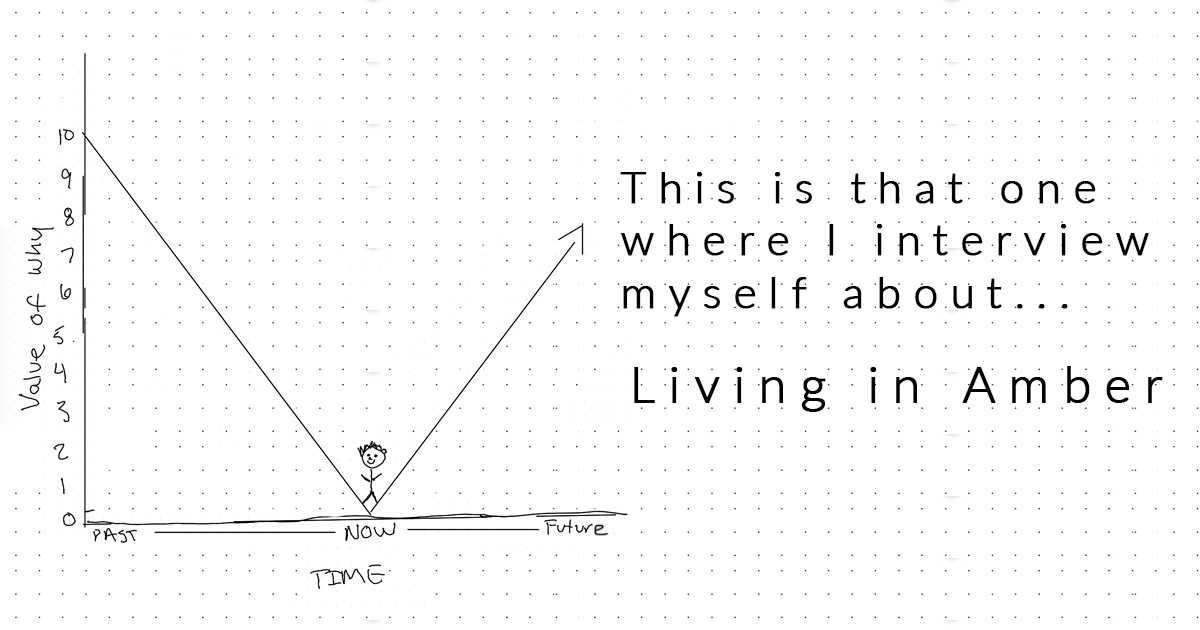In this interview, we delve into the profound impact of Kurt Vonnegut’s “Slaughterhouse-Five” on Brody’s life and work. Despite not being an avid reader, Brody shares how the novel’s themes of accepting the present moment and focusing on the now have shaped their approach to decision-making and psychological safety within their team. Highlighting the influence of their boss, Caroline, they reveal how these lessons foster a culture of calm urgency and open communication. Whether you’re a fan of Vonnegut or looking for ways to enhance your work environment, this conversation offers valuable reflections on balancing future aspirations with living in the present.
Interviewer: Let’s dive into your favorite book! To kick things off, can you tell me about one book that has had a significant impact on your life and why it stands out to you?
Brody: There's so many books! I have to say, I'm not a very avid reader - but overtime I've realized it's because as much as I love reading, I read pretty intensely. Meaning that I don't read often, but when I do it's often to internalize as much information as possible and figure out what to do with it. But to answer your question specifically, I'd have to say a book that I consistently quote to myself is Slaughterhouse-Five by Kurt Vonnegut.
Interviewer: That’s a fascinating choice! “Slaughterhouse-Five” is such a unique and thought-provoking book. What aspects of the book do you find yourself quoting or reflecting on the most? Is there a particular theme or passage that resonates with you deeply?
Brody: Besides the fact I love the way Vonnegut writes his books, and would have loved to see his mind in action for a day, the idea I find myself quoting the most is:
“- Why me? - That is a very Earthling question to ask, Mr. Pilgrim. Why you? Why us for that matter? Why anything? Because this moment simply is."
Interviewer: Vonnegut’s writing is indeed captivating and that quote encapsulates so much existential contemplation. How do you apply this idea of accepting the moment as it is in your own life? Are there particular situations where this philosophy has been especially helpful?
Brody: In product management we are constantly seeking the "why". I have this quote written on a sticky on my desk because sometimes you have to remember that regardless of the circumstances that led us to where we are (in life, or work, or in an issue with a product release) we are here - and the only thing that matters is the now.
How we got here, or the events leading up to a moment in time is just information to use for the future, but it often has very little impact on how you'll decide the next best move to progress.
Interviewer: That’s a powerful way to keep grounded, especially in a field like product management where analysis and decision-making are key. Can you share an instance where this mindset of focusing on the now helped you navigate a particularly challenging situation or project? How did it influence your approach and the outcome?
Brody: Yes, I believe I use it every day in work and in life whenever someone is frustrated with a situation they feel I'm "responsible" for. Many people have asked how I stay pretty calm or even keel when others affected by the same circumstance and I think this idea of focusing on the now is a lot of the answer.
Instead of using myself as an example, I want to use my current boss, Caroline, to describe what good looks like with this (a bit of an appreciation post) I admire her ability to stay grounded with a lot of ease even though I know for a fact it takes her work and energy to manage it. In work, regardless of career or position we're constantly having to manage other stakeholders that take out their frustrations, anxiety, and every other emotion from Inside Out. These emotions are valid for the other person, but often are misdirected towards the wrong person, place, thing, or reason. Caroline has shown me time and time again what it looks like to remember that regardless of where others energy is being directed, it's up to us as individuals to direct our energy towards the now and solving/managing for the current situation. That's the only thing that's real - the now.
Interviewer: Caroline sounds like an inspiring leader. It’s great to hear how she’s influenced your approach to handling stressful situations. How do you think Caroline’s ability to stay grounded and focus on the now has impacted the team and the overall work environment? Can you share a specific example where her approach made a significant difference?
Brody: Caroline's ability to stay rooted in the now has created a sense of calming urgency. That's a strange term, but I think it's what happens when you know that things need to progress and move forward but are comforted by the idea that we're all living in the same reality, at the same time. I talk a lot about psychological safety within teams and organizations and (in my opinion) the ability to help everyone stay in the now, and be comfortable there is a key component of that.
Interviewer: “Calming urgency” is a fantastic term—it really captures the balance between staying focused and maintaining a sense of peace. How has this environment of psychological safety and presence influenced the team’s performance and innovation? Have you noticed any specific changes in how the team collaborates or tackles challenges?
Brody: Overall, I would say the biggest change I see as we become better at psychological safety is how quickly we're able to make decisions with all the relevant information and inputs. I've been on some teams where information doesn't flow as quickly or effectively because team members are hesitant to contribute potential bad news or concerns they may feel would frustrate others in that moment. With the idea of "There is no why, it just is" there isn't really a concept of good or bad information - it's just inputs that help direct us in the moment.
Interviewer: That’s a great insight. When the team feels safe to share all information, without fear of judgment, it definitely leads to more informed and timely decision-making. It sounds like fostering psychological safety and focusing on the present has truly transformed your team’s dynamics and decision-making process. To wrap things up, how do you think the lessons from “Slaughterhouse-Five” about accepting the moment and focusing on the now will continue to influence your work and personal life moving forward?
Brody: Accepting the moment, being present, and living for the now is such an important part of my life (and my mental health). Although I often refer to the "why me" quote (probably because I think of it every time someone asks why) Slaughterhouse-Five is filled with lessons that carry through my life. One of these is to find balance between working towards future desires and living in the now. In the book, even if Billy were to train hard, wear the proper uniform, and be a good soldier, he might still die like the others in Dresden who are much better soldiers. This theme is constant reminder to me that the only thing we (as individuals) can truly control are the decisions, emotions, and actions we experience in the now.
Just because you seek better, doesn't mean that better will find you - and that has to be ok, but the moment simply is.
Interviewer: That’s a profound takeaway and beautifully ties back to the essence of “Slaughterhouse-Five.” Thank you for sharing your thoughts and experiences. It’s clear that the book’s themes have profoundly influenced your approach to life and work. As you continue to navigate your journey, how do you plan to keep these lessons front and center in both your personal and professional life?
Brody: Probably more sticky notes and maybe a tattoo will keep it front and center in my life :-)


